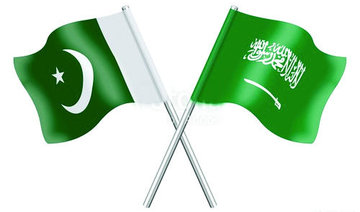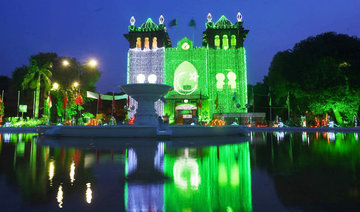KARACHI: Aiming at $6 billion export target by 2030, the stakeholders of Pakistan’s horticulture sector on Saturday come up with a “Pakistan Horticulture Vision 2030” plan ahead of the general election on July 25.
Pakistan Horticulture Vision 2030 will be of great assistance to the federal and provincial governments emerging from the general election to put the country on the path of development and stability, stakeholders and planners of the vision claimed. “This vision has been prepared with the consultation of farmers, exporters, agriculture organizations, freight forwarders, traders and researchers at various varsities”, said Waheed Ahmed, patron–in–chief of All Pakistan Fruit and Vegetable Exporters, Importers and Merchants Association, at the curtain-raising ceremony.
PHV 2030 is a comprehensive research-based project being launched for the first time by a private sector which includes proposals and consultations from local and foreign experts. “By adopting this vision the current export revenue of fruits and vegetables can be enhanced to $1 billion within two years, $3.5 billion in five years and $6 billion within 10 years,” said Ahmed, who is the architect of the plan.
The planners claimed that it will enable the sector to create 500,000 additional jobs within the next 10 years.
The PHV 2030 will deal with the chronic issues the horticulture sector of Pakistan is facing, including climate change, water management, lack of sectoral knowledge, skill development, adoption of modern technology, and, most importantly, absence of research and development.
Pakistan’s horticulture exports are less than a billion US dollars ($571 million) due to a number of factors including a major focus on traditional products and lack of innovation compared with competitors. The sector faces financing issues as well.
“Pakistan’s agriculture sector credit off-take for the financial year ended on June 30, 2018 would be around PKR1,000 billion and the share of the horticulture sector is only 3 percent or PKR26 billion,” Syed Sammar Hasnain, director of the State Bank of Pakistan, said while addressing the participants of the ceremony.
Hasnain said that credit disbursement still remains the key challenge for the central bank as disparity persists in the parts of the country. “The central bank’s major focus is on the three major sectors, agriculture, SMEs and housing,” he added.
Babar Bajwa, regional director of the Center for Agriculture and Biosciences International, said the vision was realistic and timely. He added that without addressing the problems of climate change, water management, skilled workers and ownership of farmers, no country can achieve the desired results.
Addressing the water crisis, the Provincial Caretaker Minister for Agriculture, Khair Muhammad Junejo, said that Sind is facing an acute water shortage which may affect the cotton crop this year. “Unlike in the past, the water level at the Tarbela Dam has declined in July, which is an alarming sign. The available water will end in two weeks, which will impact the cotton crop countrywide,” Junejo said.
Junejo lamented that in times of surplus agri production the farmers suffer most as their product do not get the right prices.
Dr. Ikhtiar Baig, former federal adviser on textiles, lamented that the country’s agriculture sector has contracted to 20 percent while the services sector has expanded to 60 percent. He hoped that the plan will reverse the trend with special attention.
The stakeholders hope that the launching of PHV 2030 ahead of the general election will draw the attention of major political parties who can make it part of their manifesto.

























